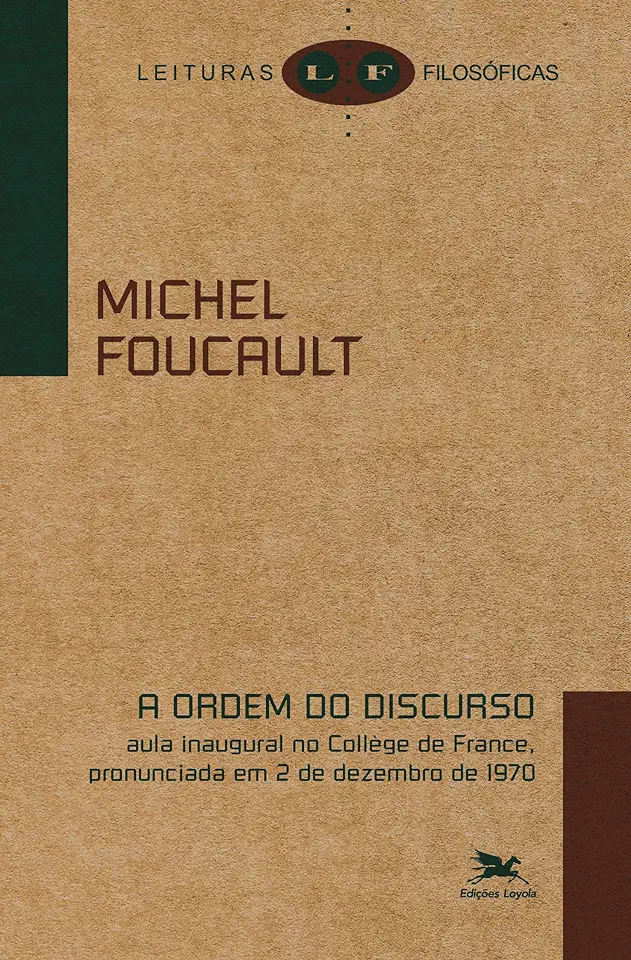
The Order of Discourse - Michel Foucault
The Order of Discourse
By Michel Foucault
In this groundbreaking work, Michel Foucault argues that discourse is not simply a neutral medium for communication, but rather a powerful tool that shapes our thoughts, beliefs, and actions. He traces the history of discourse from its origins in ancient Greece to its modern-day manifestations in the media, advertising, and politics. Along the way, he shows how discourse has been used to create and maintain social hierarchies, to control and manipulate people, and to shape our very understanding of reality.
Foucault's Theory of Discourse
Foucault's theory of discourse is based on the idea that language is not simply a tool for communication, but rather a system of power. He argues that discourse is not neutral, but rather that it is always shaped by the social, political, and economic forces that produce it. In other words, discourse is not simply a reflection of reality, but rather a way of constructing reality.
Foucault's theory of discourse has been influential in a wide range of fields, including sociology, anthropology, literary criticism, and cultural studies. It has also been used to challenge traditional notions of truth, objectivity, and knowledge.
The History of Discourse
Foucault traces the history of discourse from its origins in ancient Greece to its modern-day manifestations in the media, advertising, and politics. He shows how discourse has been used to create and maintain social hierarchies, to control and manipulate people, and to shape our very understanding of reality.
In ancient Greece, discourse was closely tied to power. The ability to speak well was seen as a sign of intelligence, virtue, and social status. Those who were skilled in rhetoric could use their words to persuade others, to win arguments, and to gain power.
In the Middle Ages, discourse became increasingly associated with religion. The Church used discourse to spread its teachings, to control the population, and to maintain its power. The Bible was seen as the ultimate source of truth, and those who questioned its teachings were often punished.
In the modern era, discourse has become increasingly secularized. The rise of science and the Enlightenment led to a decline in the power of religion, and discourse became more focused on the pursuit of knowledge and the advancement of human progress.
However, Foucault argues that discourse has not become any less powerful in the modern era. In fact, he argues that it has become even more powerful, as it has become more pervasive and more closely tied to our everyday lives.
The Power of Discourse
Foucault argues that discourse has a powerful impact on our thoughts, beliefs, and actions. He shows how discourse can be used to create and maintain social hierarchies, to control and manipulate people, and to shape our very understanding of reality.
For example, Foucault shows how the media can use discourse to create a sense of reality that is favorable to the interests of the powerful. The media can select and emphasize certain events, while ignoring others, and can frame events in a way that supports the status quo. This can lead people to believe things that are not true, and to support policies that are not in their best interests.
Foucault also shows how advertising can use discourse to manipulate people into buying things they don't need. Advertising can create a sense of desire for products, and can make people believe that they will be happier if they own those products. This can lead people to spend money on things that they cannot afford, and to get into debt.
Finally, Foucault shows how politics can use discourse to control and manipulate people. Politicians can use discourse to create a sense of fear and insecurity, and to convince people that they need to be protected by the government. This can lead people to give up their freedoms, and to support policies that are not in their best interests.
Conclusion
The Order of Discourse is a powerful and provocative work that challenges our traditional notions of truth, objectivity, and knowledge. Foucault's theory of discourse has been influential in a wide range of fields, and it continues to be a source of inspiration for scholars and activists today.
If you are interested in learning more about the power of discourse, I highly recommend reading The Order of Discourse. It is a challenging book, but it is also a rewarding one. It will change the way you think about language, power, and the world around you.
Enjoyed the summary? Discover all the details and take your reading to the next level — [click here to view the book on Amazon!]